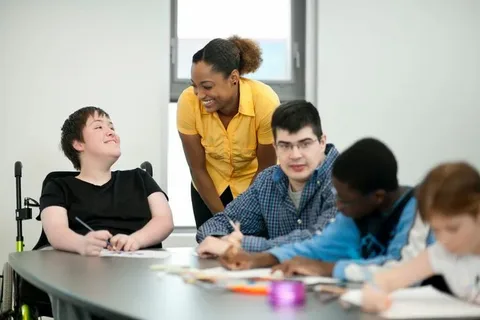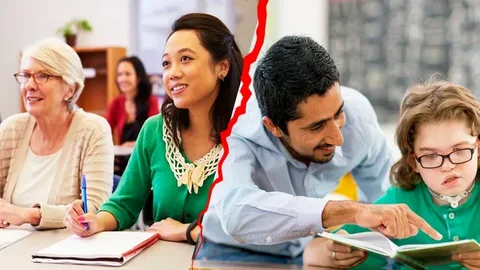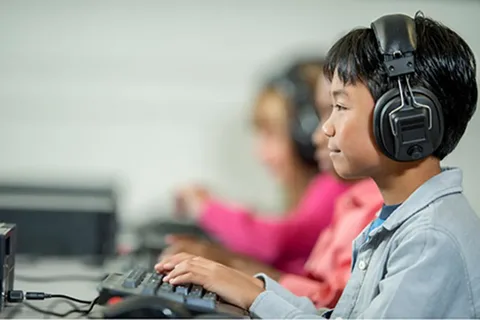Special Education Director Finalists: Full Guide
Finding the ideal special education director could make all the difference for students who have unique requirements. Schools are always seeking out leaders who are dedicated to inclusion, have experience in the field, and are able to be influential. What is the criteria for a person to make it a finalist in this job? What should the community be expecting from these most prestigious contestants?
Let’s take it apart.
Outline
- What is a Special Education Director?
- Why Choosing the Right Special Education Director Matters
- How Finalists are Selected
- Qualities of a Great Special Education Director Finalist
- Roles and Responsibilities of a Special Education Director
- Challenges Finalists Face
- How Schools and Districts Support the Selection Process
- The Interview Process: What Finalists Go Through
- FAQs
- Conclusion
What is a Special Education Director?

A Special Education director is accountable for overseeing and directing the school’s special education program. The director will assure children with disabilities receive the assistance they require to be successful at the classroom. This involves making Individualized Education Plans (IEPs) in collaboration with staff and teachers and keeping abreast of the law and desirable methods.
Their work isn’t only about complying with the guidelines. It’s about looking at every child as a unique person with potential and discovering ways to make education accessible to everyone.
Why Choosing the Right Special Education Director Matters
In the case of learning disabilities, the correct leader can transform lives. A great director is a champion for students and collaborates with parents, teachers and the wider community to ensure everyone is on the same page.
This is why it’s important:
- Better Student Results A well-trained director is one who has well-designed support programs that lead to better educational outcomes for students who have disabilities.
- effective communication This job involves creating relationships with families, establishing trust and ensuring that they know the available resources.
- Conformity with Regulations Special education is subject to strict policies and laws. A competent director is able to be compliant, keeping the school district from trouble.
- occupational Education for Teachers Teachers can use HTML0 to raise their abilities and discover new methods to help students with special needs.
How Finalists are Selected
The process for selecting a director of special education is rigorous. There is no way to be suitable to be experienced; schools are seeking participants who stand out due to the most important reasons.
Here’s a common selection process:
- Application Review
- The hiring team reviews applications, searching for qualifications as well as experience and determination to support special education.
- introductory Interview
- Candidates who get past the first hurdle usually have a pre-interview to discuss their method as well as their experiences and philosophy.
- Panel Interview
- Finalists usually have a meeting with a panel, which comprises district officials, educators and, sometimes, parents. This allows the school to determine whether the candidate is a great fit with the culture of the school.
- Reference Checks
- Schools meet with the former supervisors, coworkers and other people to get an idea of the applicant’s working style and previous performance.
- Final Choice
- After interviews and references examinations, after which the district or school decides.
Qualities of a Great Special Education Director Finalist

To make it into the top ten, applicants need a mix of skills knowledge, experience, and passion. These are the qualities schools are looking for:
- Solid Advocacy Skills The HTML0 team advocates to support students with disabilities and is able to ensure they receive the appropriate help.
- Understanding of Special Education Law: Special education is a complex area of law and rules, and a competent director is aware of these guidelines thoroughly.
- Good Communication Finalists need to be able to establish a connection with families, students and teachers.
- Experience in education A solid foundation in education administration or teaching is vital.
- Ability to Solve Problems Each student is unique; therefore, directors must think creatively and find solutions that work.
Roles and Responsibilities of a Special Education Director
Special Education Directors are required to wear many hats. Here are a few of their primary duties:
- Overseeing Special Education Programs
- They handle all special education programs, from assessments to accommodations for classrooms.
- Supporting Teachers and Staff
- Directors offer education, resources and support for teachers, assisting them to assist students with disabilities.
- Developing Individualized Education Plans (IEPs)
- They work in a team to develop a customized plan for each student that outlines the specific goals and methods for support.
- Ensuring Legal Compliance
- They are up-to-date on laws pertaining to special education in order to warrant that the school stays in compliance.
- Coordination With Family members and The Community
- Directors frequently visit parents to discuss the progress of their child as well as address any concerns and help in providing the necessary resources.
Challenges Finalists Face
Finalists aren’t easy sailing. There are unique challenges such as:
- high expectations Schools look for finalists to come up with new ideas but also remain steady and reliable.
- time management Directors have multiple responsibilities and balancing the two can be difficult.
- Moving through Change Special education is constantly evolving Therefore, finalists should be ready to change.
- Complex situations Certain cases are difficult and require a careful approach. Finalists must be resilient and have empathy.
How Schools and Districts Support the Selection Process
Districts understand that finding the best specialist education coordinator is vital. Here’s how they can help move in the process:
- Clear Job Descriptions
- Schools must assure that the job description includes everything the director must perform. This will help applicants decide if they’re a best fit for the job.
- Involving the Community
- Some districts include teachers, parents, as well as students, during the process of hiring to warrant the selected candidate is well-integrated into the community.
- Providing Resources
- Schools aid contestants by providing information about what is currently happening with the special education curriculum’s strengths and areas of improvement.
- Transparent Communication
- Transparency in communication is a key factor in establishing trust and ensuring all voices are heard in the process of hiring.
The Interview Process: What Finalists Go Through

For a lot of applicants, the interview process can be the most difficult. It’s more than just answering questions. It’s about showing dedication to students as well as knowledge of special needs education.
Here’s a summary of the stages of an interview:
- Questions on Approach and Philosophy
- Candidates are questioned about their attitude towards integration and also how they deal with difficulties in special education.
- Scenario-Based Questions
- They could be presented with scenarios, for example, how to respond to the difficult IEP meeting, and then see how they’d react.
- Vision for the Future
- Finalists are frequently asked about their plans for the special education program at their school and what they’d like to alter or rise.
- Communication Skills
- Schools determine the level to which applicants communicate as directors interact with many different groups.
FAQs
What are the qualifications the finalists for special education directors need?
The majority of finalists hold the master’s degree in education, special education, or educational leadership. They typically have many years of work experience with students who have disabilities, whether as a teacher or an administrative position.
How long will the process of selection take?
The process may differ by district but usually takes several months, based on the amount of involvement by stakeholders as well as the number of applicants.
What role do family members play in the process?
Certain districts include families in the interview process in order to collect feedback from the applicants. Families can also take part in focus groups or surveys to determine the characteristics they would like in a director.
Are there any finalists who will be a factor in the process of selection?
Finalists have the opportunity to influence the process through sharing their thoughts about their approach, strategy, and goals. Schools are often looking for participants with fresh perspectives on the job.
If the candidate isn’t successful?
If a candidate does not meet the expectations of the school, they usually offer support mechanisms such as mentorship and education. If the issue persists, it is possible to return to the process of hiring to find an alternative that is more suitable.
Directors of special education work only with students?
Yes, they collaborate closely with teachers, administrators, as well as parents and other organizations. Their job is to build an effective support system for students who have disabilities.
Conclusion
Finding the ideal director for special education can be a gruelling task yet extremely crucial. Special education director nominees are not just educators; they’re advocates and leaders as well as problem-solvers working to create an inclusive learning environment.
If you get to have the opportunity to meet a finalist, see someone who is committed to making a significant difference for children who have disabilities. They’re dedicated to ensuring that each student has an opportunity to succeed, regardless of the needs they have.
For both communities and schools, selecting the best director isn’t about filling a job. It’s about choosing a leader who will defend the rights of students, help teachers, and create a safe space for each learner. In the end, choosing the right leader can be the most important factor.
If you come across the phrase “special education director finalists,” be aware that it signifies more than a mere title. It’s the commitment to transform lives.




